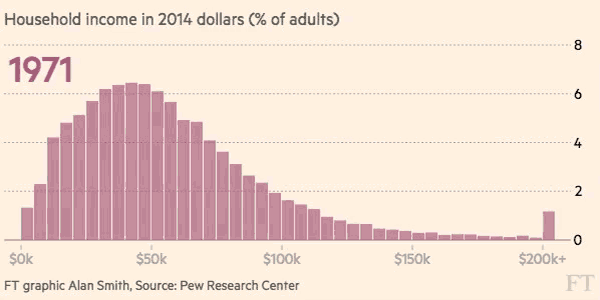Tech is a Tool, not a Religion
Thoughts on the 'Techno-Optimist Manifesto'
Marc Andreessen: “We believe in accelerationism – the conscious and deliberate propulsion of technological development – to ensure the fulfillment of the Law of Accelerating Returns. To ensure the techno-capital upward spiral continues forever.”
Yikes. The above two sentences sound more like a prayer than an argument… ‘We Believe’, ‘ensure the fulfillment’, ‘continues forever’.
I like tech lots. I’ve spent my career working on multiple tech projects. Like Marc, I started programming as a kid. I have the rules for the flocking algorithm tattooed on my forearm. I built Second Life, and at the same time Marc was working on the browser, I was working on how to compress and send streaming media through it. It’s hard to be much closer to tech.
But I stop well short of seeing tech as an unalloyed good, a target for blind faith, or a framework in which anyone questioning growth-at-all-costs is the ‘enemy’. Here are some thoughts on how to use tech for good, versus worshiping it:
Timing matters
The idea that technology will improve things at some point in the future but might cause harm for a while is not a useful model for people with immediate needs and a limited lifespan. If tech puts 10,000 people out of work (for example taxi drivers) and the new jobs for those same people don’t show up for another decade or more, those people still suffer and possibly starve. The Luddites were right in the short term. As with most everything in life, focusing on the present moment is vital.
Good people deploying new tech should optimize for both the short and long-term impact of their work to be positive.
Utopias are made for one person
Not Utopia, But Close Enough
However, we are not Utopians.
The very word… U-topia… conveys the idea that some specific person (ideally You the reader as well as presumably the author) will be happy with the outcome. But real worlds contain multitudes of very different people. Stable real-world societies succeed only by continuously considering and balancing the perspectives of a large number of widely differing people (for example by voting in a democracy). But a Utopia is the opposite of that balancing act: it is an extreme where welfare for one sort of person is maximized, often at the cost of all other types of people. And that is what a maximally techno-capitalist system would do (and has demonstrated for the last few decades) - it will optimize the welfare of those whose livelihoods are involved in launching disruptive new forms of technology for their own profit, often at the expense of others. From the vantage point of a tech entrepreneur, Utopia is a society without any government or regulations where you can build and launch new products with absolutely minimal friction. From the vantage point of a taxi driver or motel operator, Uber and AirBNB are artifacts of a very dystopian world.
A better word coined by Kevin Kelly is “Protopia” - a state of affairs where everyone (lots of different kinds of people) are able to make things slightly better, each day, through their own efforts. Capitalism and free markets, when combined with limitations on monopoly and redistributions mechanisms to prevent runaway inequality, often can maximize the rate of progress in such a Protopian environment.
Good people deploying tech need to ensure that their products have at least modest positive impact for everyone, rather than being satisfied with the much lower utopian bar of the average impact being positive (very positive for some and then negative for others).
Empathy guides the ‘Invisible Hand’
We believe markets do not require people to be perfect, or even well intentioned – which is good, because, have you met people? Adam Smith: “It is not from the benevolence of the butcher, the brewer, or the baker that we expect our dinner, but from their regard to their own self-interest. We address ourselves not to their humanity but to their self-love, and never talk to them of our own necessities, but of their advantages.”
Many people believe that Adam Smith meant that people were self-interested ‘rational actors’, and that this behavior created idealized outcomes. But there was more to his thinking: Seventeen years before the ‘Wealth of Nations’, Adam Smith wrote ‘The Theory of Moral Sentiments’, in which he laid out the proposition that people are very concerned not just with their own welfare but also that of those near to them:
As we have no immediate experience of what other men feel, we can form no idea of the manner in which they are affected, but by conceiving what we ourselves should feel in the like situation. Though our brother is on the rack, as long as we ourselves are at our ease, our senses will never inform us of what he suffers.
He goes on to basically describe the modern idea of ‘mirror neurons’ - that we inevitably experience empathy when we see others having experiences. That empathy lead Thus - and in fact - Adam Smith’s markets DO required people to be ‘well-intentioned’, at least at some local scope. To make tech have a positive impact, builders should consider whether their products might cripple healthy markets by reducing the empathy that market participants feel for each other.
GPT-4 explains it better than I just did:
That last sentence - “trust among participants” is key as well. In deploying tech, always maintain or preserve levels of trust. We haven’t done too well on that one lately.
Fairness is a Requirement
By ‘fairness’, I mean the answer to a question like: “Does Mark Zuckerberg deserve $110 Billion for creating Facebook?”. Why do we enjoy discussing this question so much? If we had no concept of fairness we might find the question boring, or shrug and say “I dunno, I’ve never thought about it.” But most of us have strong opinions, the way the monkey in the video above demonstrates some very strong opinions about his friend being given a grape for doing the same job that earned him a cucumber.
We, like Capuchin monkeys, are pro-social mammals - very dependent on each other for survival - and this evolved behavior could only have evolved alongside a keen sensitivity to fairness. Think about it: if we have evolved cooperative behavior without an awareness of fairness, ‘free riders’ (those contributing less than the average in a group) would have won out and reduced the amount of cooperation we were doing back toward zero. This is why perceived fairness is VERY important to us, and why the following statement can be regarded as necessary-but-not-sufficient for creating well-being:
We believe markets lift people out of poverty – in fact, markets are by far the most effective way to lift vast numbers of people out of poverty, and always have been.
Sentences like these are often defending the argument: “It’s OK that wealth inequality is increasing (due to the actions of free markets, btw), because poor people have more stuff now than ever before” (phones, cars, refrigerators are typically-given examples). But it’s not OK at all, because we are evolved to value fairness so highly. In fact, we are surrounded by examples of people being willing to die over fairness - for example if you think that your children are being treated unfairly.
Technology founders can consider whether their work increases or decreases subjective fairness. As a negative example, sorting videos by views (e.g. YouTube) creates a power-law distribution in income among creators, which everyone knows is unfair. Human capabilities are almost always distributed over a normal curve - meaning most people are normal and a few are exceptional:
But when you look at income distribution in the US, you instead see a power law, where a small number of people capture almost all the income:
The monkey-fairness part of our brains gets pretty pissed off looking at that distribution of household income - and it should. To increase global well-being (not just income), we need to see something closer to normal distributions for income. A positive example of good design in this regard is sports clubs, which use various techniques to keep the distribution of team performance ‘fair’ despite the temptation by successful teams to re-invest their earnings in hiring away the best players - an “upward spiral” (to quote Marc) that would otherwise quickly result in no-one wanting to come to the games.
Summary
Tech is neither inherently good not evil. It is not a religion that should be worshipped. It is a powerful tool we collectively use to change the world. We should use it with the same debate, consideration, and care that we use other powerful tools, such as political or financial systems.
Credits and links for further reading….
Thank you Vlasta Pokladnikova for introducing me to Adam Smiths ‘The Theory of Moral Sentiments’ and the real meaning of the ‘invisible hand’.
Kevin Kelly’s amazing coining and explanation of ‘Protopia’
Bruce Boghosian’s 2019 Scientific American article ‘Is Inequality Inevitable’ explains how Free Markets, surprisingly and inconveniently, always amplify inequality.
Elinor Ostrom’s ‘8 Principles for Managing a Commons’ are a welcome antidote to excessively libertarian thinking from a Nobel Prize winning economist who studied why the theoretical ‘tragedy of the commons’ rarely actually happens.
Thanks to Christiaan Vorkink at True Ventures for telling me about the way sporting teams keep things fair with a ‘luxury tax’ to stop teams from buying up all the good players.






Very well said. I've been thinking along these same lines. IMO, two+ centuries of capitalism have proven its ability to generate wealth for society more broadly than any other system in history. By far. But are the excesses of wealth inequality, environmental degradation, and human exploitation inseparable from the practice? Or are they abuses that can be curtailed or minimized? If the former, we either have to either sacrifice our humanity (by accepting the cost) or our wealth (by throwing the system out for a less successful alternative).
If the latter (and fairness/empathy being the human emotion most likely to be our success-measuring yardstick), it becomes a logistical question. Maybe the trust-busting Teddy Roosevelt was on the right track a century ago: "There is a widespread conviction in the minds of the American people that the great corporations ... are in certain of their features and tendencies hurtful to the general welfare ... [this] is based upon sincere conviction that combination and concentration should be, not prohibited, but supervised and within reasonable limits controlled; and in my judgment this conviction is right.
"It should be as much the aim of those who seek for social betterment to rid the business world of crimes of cunning as to rid the entire body politic of crimes of violence.”
It would certainly help if our elected leaders weren't beholden to or actively benefiting from those 'criminals of cunning'...
“Tech is neither inherently good not evil.” Is “not” a typo? Should be ‘nor’?